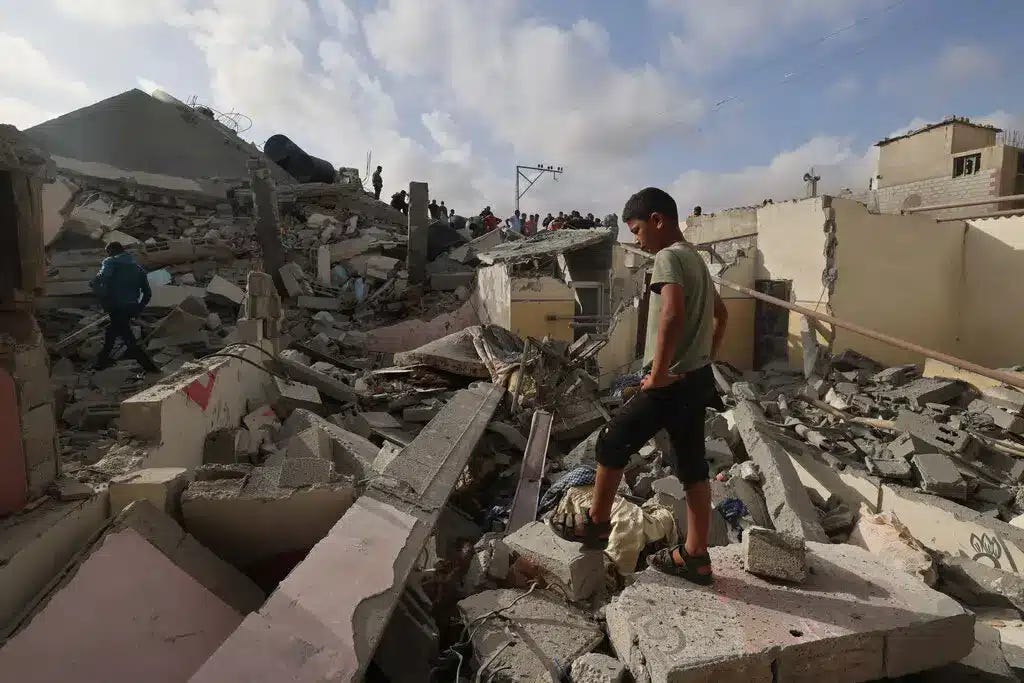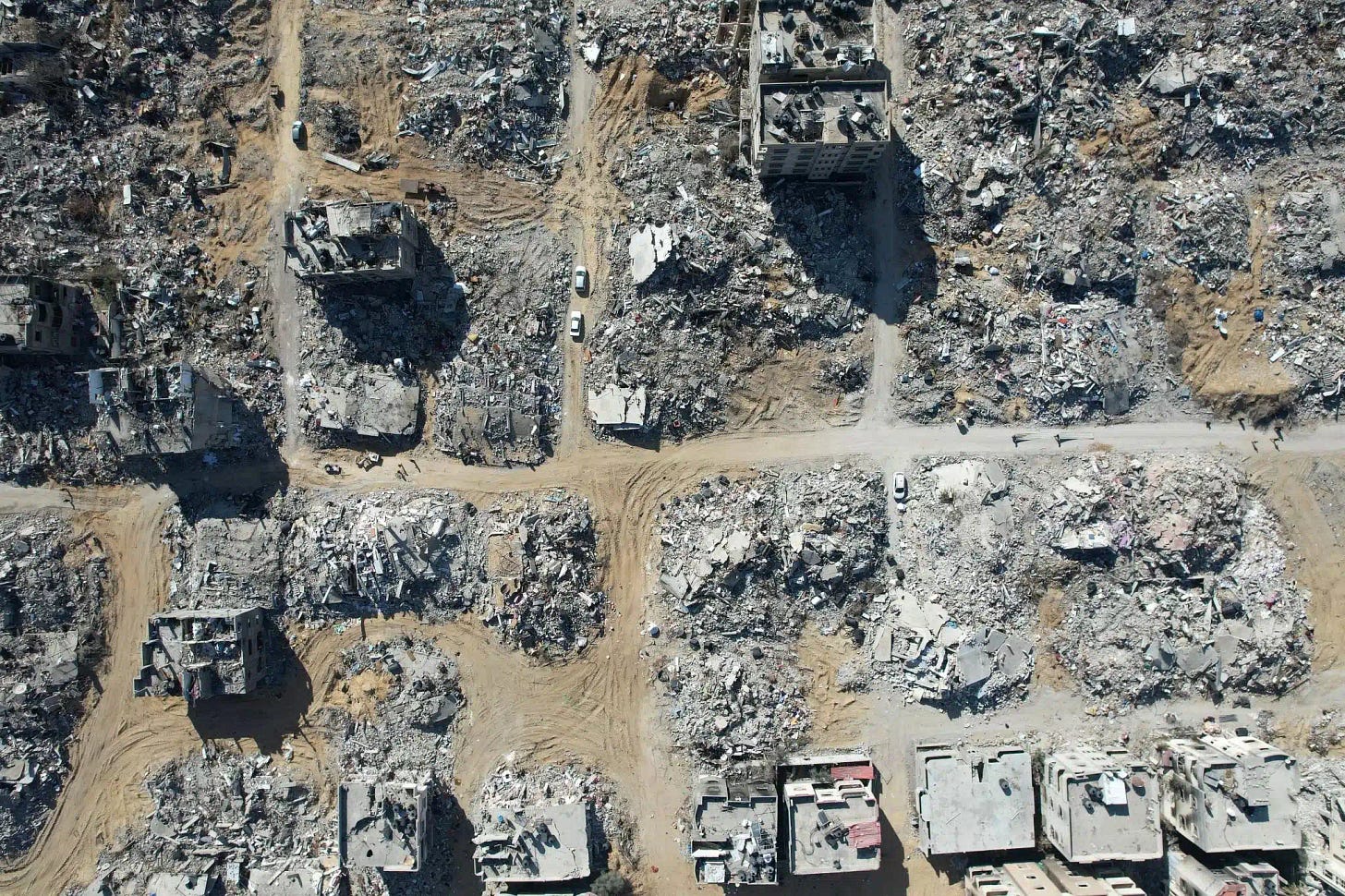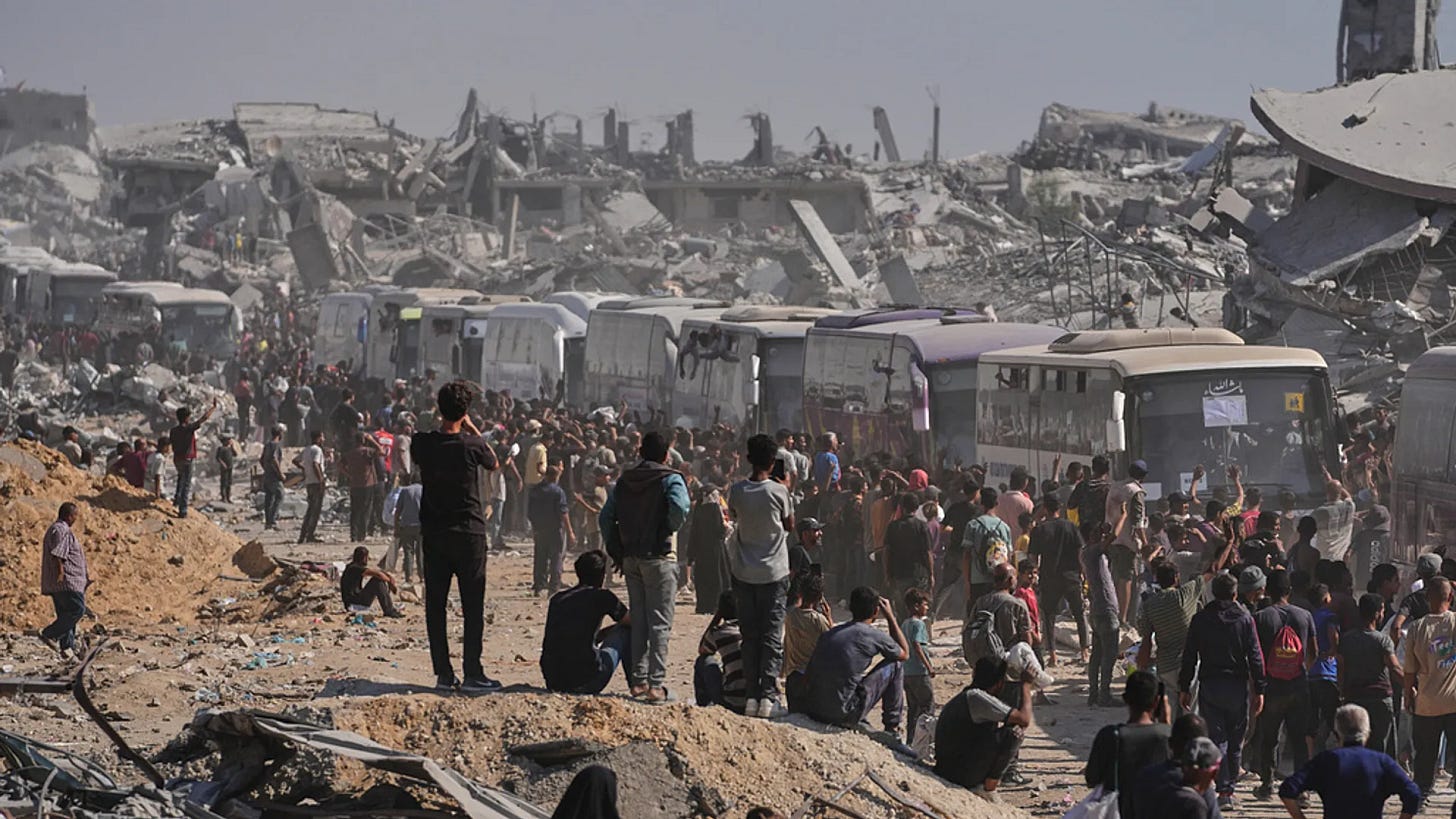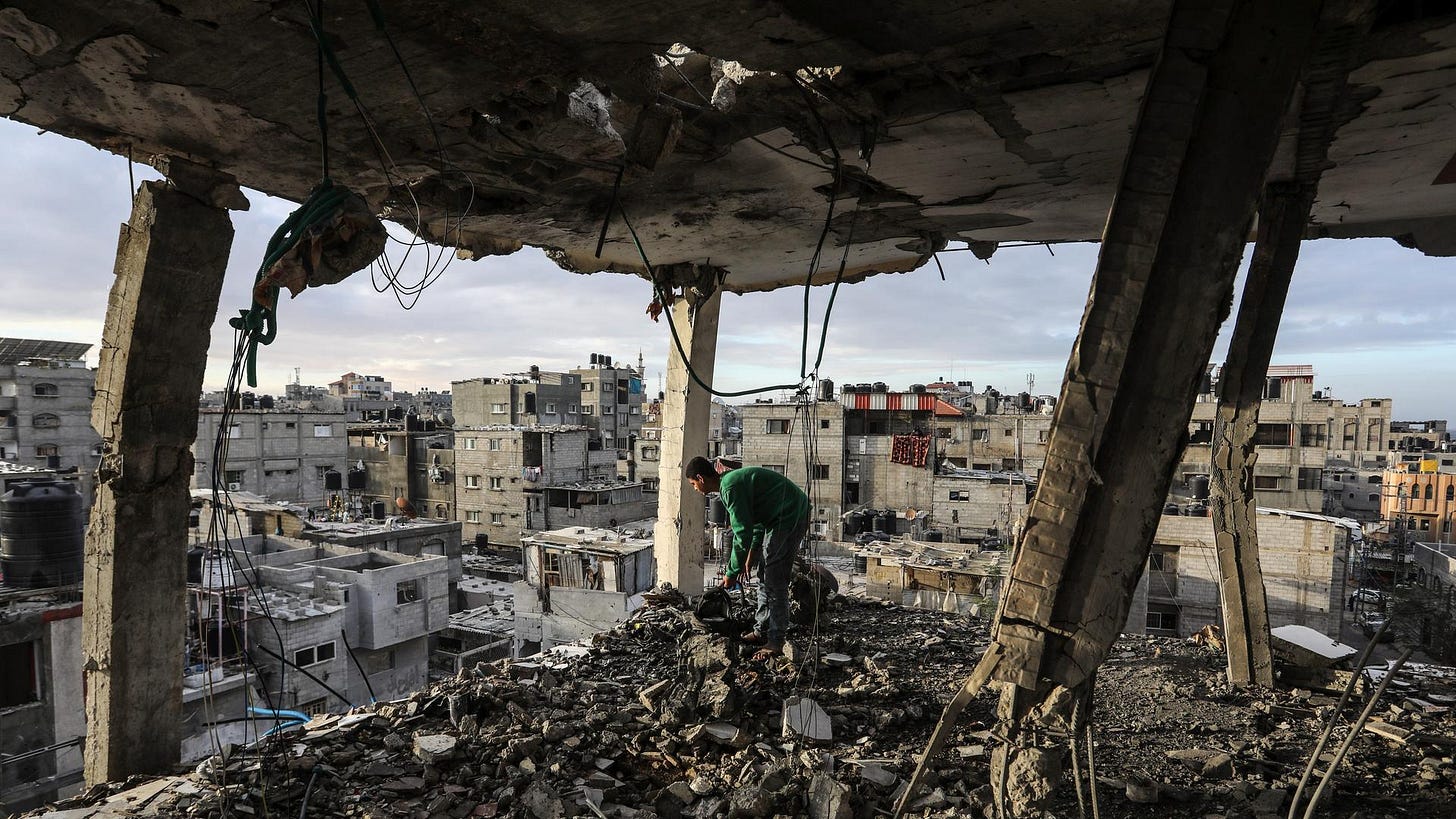
Since the war on Gaza began, Rafah at the far southern edge of the Strip has borne witness to some of the conflict’s most harrowing chapters. Today, however, it stands among the most devastated and most neglected cities, suffering in silence.
Once a refuge that opened its doors to those fleeing from the north and center of the Strip, Rafah now finds itself homeless, voiceless, left to face its fate alone first under bombardment, and now under suffocating political and media isolation.
Between Sahar, who sees Rafah as part of her very identity; Ahmad, who slept on the rubble of his home seeking a semblance of safety; and Raed, forced to flee the city a second time the stories of Rafah pulse with the pain that thousands of families continue to endure.
A City of Undying Memory
“On May 6, 2024, I was forced to leave the Al-Salam neighborhood in Rafah after the Israeli army issued an evacuation order ahead of a new military operation. It was one of the largest waves of displacement since the war began a moment heavy with shock, fear, and longing,” recalls Sahar Al-Nahhal. For her, displacement wasn’t merely leaving a house it was a brutal uprooting.
Rafah, in all its detail, remains vivid in her mind: Al-Najma roundabout, the bustling open-air market, the crossing, Al-Awda Mosque, and the refugee camps each one telling stories of endurance and resilience.
Speaking to NoonPost, Sahar says she still carries in her memory the pulse of its crowded streets, the voices of people, and the laughter of children sounds that once filled the air before they were replaced by silence and sorrow.
Rafah, she says, was always a warm embrace, a city that welcomed the displaced from both north and south, opening its homes and hearts to all. Today, the city is draped in rubble but its spirit, she says, lives on.
Despite the destruction, despite the bulldozed streets and the erasure of landmarks, “We are waiting to return because Rafah, even with all it has lost, is still our home.”
Rafah Still Calls Out
Ahmad Jarbo’, a young man from the Al-Shaboura neighborhood of Rafah specifically from the Bir Salem junction near the Buraq stadium describes his experience with displacement, return, and then forced displacement once again, caught in an unending cycle since the war began.
“I was first displaced to Al-Mawasi, Khan Younis. After the ceasefire was announced on January 19, I returned home, just like many others,” Ahmad tells Noon Post. “The house was partially destroyed, but it was still our home. Our longing for it outweighed everything else.”
The return wasn’t easy it was a moment charged with conflicting emotions. “That first day back in Rafah, I felt a deep sadness at the scale of destruction. But at the same time, there was indescribable joy at being home again. Sleeping there that first night, despite all the destruction around me, brought a comfort I can’t explain.”
During the war, Ahmad and his family opened their home to more than four displaced families from Gaza City and Khan Younis. “We shared everything our space, our food. That’s how Rafah was. We were all family.”
Yet despite this generosity, Ahmad feels Rafah has been forgotten, excluded from negotiation tables. “Rafah is absent from the talks as if no one knows a whole city is suffering. We wake and sleep to the sounds of bombs and bullets. The last shell hit our home directly. I had to flee again to Al-Mawasi.”
Like so many others in Rafah, Ahmad now follows the news of a ceasefire with heavy anticipation. “The ceasefire came but we still haven’t returned. Life is still hard for the people of Rafah. Every day, we call on the world and the press to hear our voices. Rafah is not okay. It deserves to live again.”
He ends his testimony with a voice full of longing and hope: “Rafah is beautiful. It brings a peace of mind that can’t be described. We used to return to sleep on the rubble of our homes just to be back. Now, all we want is to live with dignity, to return to our city, to Rafah.”
Uprooted from Rafah
Raed Abu Ubaid, a resident of Al-Salam neighborhood in Rafah, recounts his own experience with displacement and return only to be uprooted once again. His story echoes the pain of an entire city forced from its homes under fire.
“I was first displaced from Al-Salam,” he tells Noon Post. “After the ceasefire, I returned home, despite the risks. Gunfire never really stopped in the area, but I stayed. My house was partially destroyed, but it was the only way to feel alive in my city.”
But the truce was short-lived, he continues. “When the war resumed, we were ordered to evacuate Rafah entirely. We left under immense pressure and fear. Now we’re certain our homes are gone. The occupation leaves nothing behind. Destruction isn’t the exception it’s the rule.”
He remembers with deep emotion how Rafah, at the start of the war, had embraced those displaced from northern Gaza: “We lived as one. We opened our homes, shared our bread and memories. There was no ‘us’ and ‘them’ we were one body.”
But now, he expresses a deep bitterness: “No one talks about Rafah anymore. The city has been forgotten—erased from the headlines and the negotiations. Even the emotions of its people have vanished from view.”
He concludes with a voice filled with yearning and determination: “Rafah is not just a city it’s a heartbeat. Nothing can replace it. It will not be forgotten, because we are still dreaming of it, still waiting to return, no matter how long it takes.”





